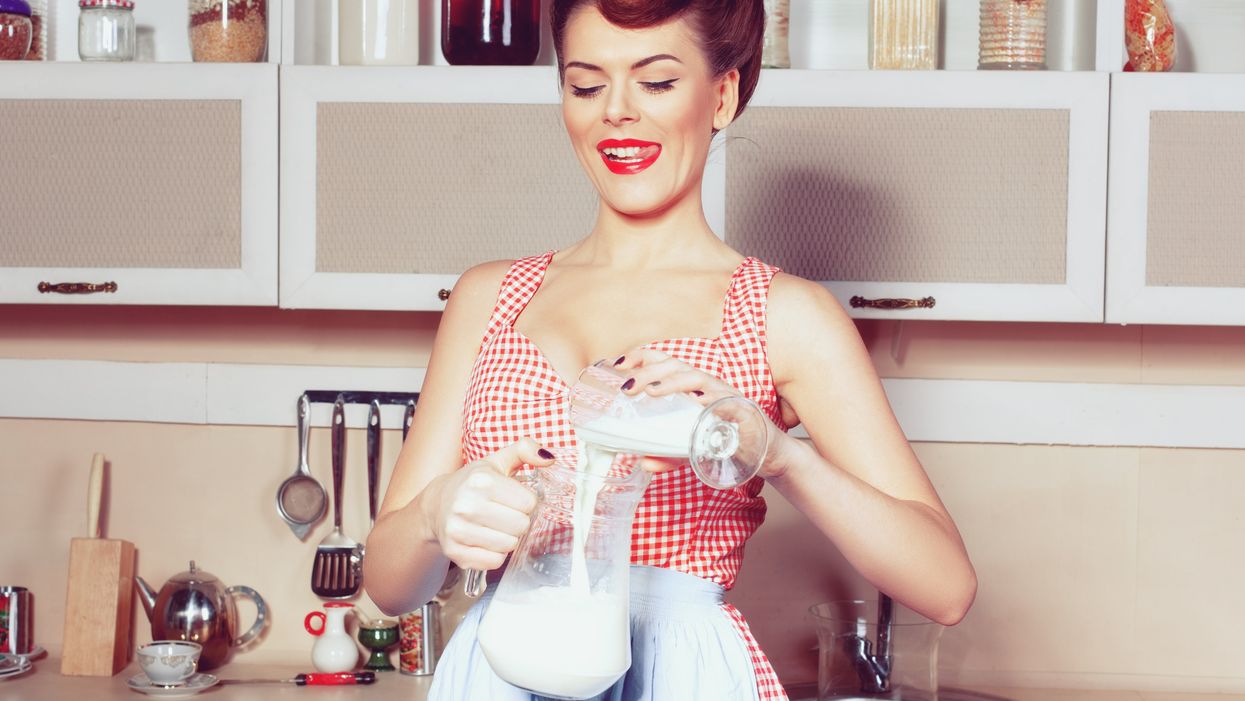
New York Magazine has made a provocative proclamation: Whole (dairy) milk is back, and hot girls are pioneering the alleged “return” to a pro-dairy lifestyle.
Personally, I’m outraged. I can’t drink milk due to a milk allergy (not lactose intolerance! Actual allergy to milk!), nor do I know very many “hot girls” who actually drink dairy — but not because alternative milks are “better.” It simply seemed that plant milk was simply better for the environment, and/or your (at least my) gastrointestinal tract. Instead, this article asserts faux milks are akin to “culinary nirvana,” something with which I surely disagree: I, and most of my “hot girl” friends, consume plant milk out of necessity. But this piece gave another perspective: It was merely following a trend, which as of this summer, is allegedly seeing its way out.
@NYMag @Emily_Sundberg Never could understand the hate towards whole milk.— Robin Quon (@Robin Quon) 1629730681
New York Mag’s milky saga begins with Emily Sundberg, who penned the controversial piece, spending her summer in Europe. Whilst across the pond, she enjoyed a variety of milk-forward coffee beverages, not giving the real dairy a second thought. “ I was in a simpler, more sensible world, one without an alt mylk or nondairy creamer in sight,” she wrote. “The real international delight, I realized, is pouring whole, full-dairy milk into your coffee; it is perhaps the most civilized activity in which a person can partake.”
(Envy increasing.)
Plant milk has soared in popularity in the United States over the past decade, which I, again, had assumed was due to its sustainability, or more people going vegan. But now, as theorised by Sundberg in Europe and reiterated by Meeka, a waitress in downtown Manhattan, hot girls are reclaiming the milk narrative and opting for a classic: Whole dairy milk.
“It started happening about two months ago,” Meeka said of the return to dairy. “I noticed that I was using less and less oat milk, and going to the walk-in more and more to get whole milk.”
“First, almond milk was too bad for the environment,” she continued. “Now oat milk is much too oily. But whole milk stays true to what we were told as children: calcium is good for you.”
Caroline Hesse, a manager and cheese expert at Brooklyn’s Crown Finish Caves, also spoke to Sunberg about the phenomenon, theorising that there is “a quest for absolution in the foods we eat,” which prompted the move away from dairy in the first place.
Avoiding real milk is an essential building block for the cultural elites https://t.co/NdcrKMcBhU— Hanging_Brain 2022 Spring/Summer Collection (@Hanging_Brain 2022 Spring/Summer Collection) 1629732003
“I think consumers were fed this lie by what I call the Goop Industrial Complex that if you cut dairy from your diet you will have more energy, clearer skin, and you will never ever fart ever again,” she explained. “But the case against dairy ignores many of the complexities of our food system, and I think people are starting to realize that.”
Hesse said she’s heard whispers of a dairy resurgence through the grapevine (cow udder?).
“One friend starts talking to another friend about how the luscious cream-top of full-fat Brown Cow yogurt has changed their mornings forever, and so the domino effect begins,” she said.
really glad all the “alt-milks” popped up when i turned lactose intolerant. oat milk the real deal. i’m never going… https://t.co/SpTIVN5gOd— Gladio B. Free (@Gladio B. Free) 1629732497
“I recently met someone who proudly told me that she never swapped out the whole milk that goes into her morning coffee, and I could see everyone’s ears perk up,” she continued. “After such a long time of nobody even considering milk, there is now something taboo and enticing about keeping it in your fridge.”
But of course, people with milk allergies and/or lactose intolerance are shooting back: It’s not that we prefer alternate milks, it’s that we need them.
Culinary nirvana? How about the path to my not being doubled over with stomach pain. It isn’t a trend for a lot of… https://t.co/jXje3w6no0— Erin J 🇺🇸 (@Erin J 🇺🇸) 1629731866
Still, Hesse is confident dairy is making a comeback (for those who don’t suffer from dietary dairy afflictions).
“Sometimes, all people need to be convinced that dairy is fine — and even good — is that one friend who made the switch to announce that, after they did, nothing terrible happened to them,” she said. “And once people try it themselves, they realize how hungry they’ve been this entire time.”
For the fellow milk averse: May I offer some potato milk?













